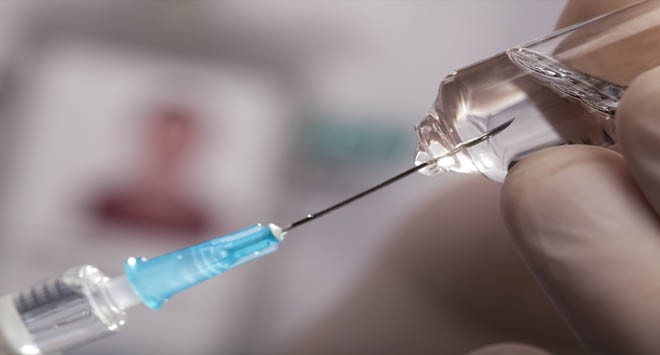
If the situation does not improve, more embassies will start asking for polio immunisation certificates from applicants with visa applications

As if the problems with carrying a green passport were not enough, the government of Pakistan has made it mandatory for all its nationals to produce polio immunisation certificates at all points of exit from the country. These include all airports, seaports, and border posts. This decision was taken in June last on the recommendations of WHO, which said it was essential to stem the international spread of wild poliovirus.
As per instructions, everyone who has spent more than four weeks in Pakistan must receive a dose of either the Oral Polio Vaccine (OPV) or Inactivated Polio Vaccine (IPV) between 4 weeks and 12 months prior to international travel, regardless of nationality or vaccination status prior to one year before departure date. This means all the foreign visitors to Pakistan, returning to their point of origin, will also receive a polio vaccine dose and be certified if they spend more than four weeks in the country.
The WHO declared the international spread of wild poliovirus a "Public Health Emergency of International Concern" on May 5, 2014. Since then, it has demanded of Pakistan, Cameroon, and Syria -- three countries with highest incidence of polio cases -- to take emergency measures to check export of polio virus from there to other countries.
This means all the people travelling abroad from these countries have to show proof of the fact that they have been vaccinated against polio virus. The concerned health departments of these countries are issuing international certificates for polio vaccination which are valid for one year. After the expiry of this period, these intending travelers will have to get polio vaccine dose once again.
The government of Pakistan protested the decision and requested the WHO to give it grace period to put things in place. It also complained that imposition of these sanctions will isolate Pakistan in the international community. The question is will this be the only impact of these travel restrictions or the aftermaths would be diverse and much more harmful for the country in the long run?
A senior officer in the Punjab health department tells TNS on the condition of anonymity that there is pressure from the international community on Pakistan to streamline its polio immunisation campaign in the country. Otherwise, he says, it is common knowledge that adult people hardly carry polio virus. However, he agrees that polio virus, with origins in Pakistan, has been found in different countries of the world and there is sufficient evidence to prove that it is being exported from the country.
The order issued by the Ministry of National Health Services, Regulation and Coordination (NHSRC) in this regard clearly highlights "the critical need to standardise the implementation of polio-related travel regulations across the country in view of the grave risk to the country’s reputation and image internationally posed by inconsistent and lax implementation of the travel recommendations."
The instructions by NHSRC are being followed at exit points but there is a perception that immunisation certificates are hardly demanded from the travelers.
Arif Chaudhry, manager at a Lahore-based travel agency, says if the situation does not improve different embassies will start asking for polio immunisation certificates from applicants with visa applications. This he says would create problems for people, especially those with a need to travel abroad on an emergency basis. "The applicants will have to produce vaccination certificates obtained weeks or months before applying for visas and go through long waits due to the verification process initiated by embassies."
At the moment, Indian visa office staff is quite strict in this regard and asks all the Pakistani visa applicants to produce vaccination certificates obtained at least six weeks before their tentative date of departure for India. There were complaints about submission of forged immunisation certificates as well. India visa office took notice of this irregularity and announced that such acts would result in summary rejection of visa applications and permanent denial of visas for future travel.
Arif says it is quite understandable why people go for forged certificates. "If you have to apply for visa instantly and you do not have a certificate issued four to six weeks before the date of applying what else would you do? Imagine how people will be affected if other countries also revise their visa requirements like India," he adds.
Dr Suhail, an official at the Punjab EPI directorate, says the government has declared that only an officer no less than BS-19 shall be authorised to sign and issue vaccination certificates at the designated centres after ensuring the administration of prescribed vaccine dosage. The purpose, he says, is that the vaccine is administered properly and there are no chances of issuance of forged certificates.
As per prescribed procedure, the certificates issued at the designated centers shall have serial numbers prominently displayed on top of the certificate. Record of the patient, passport number, the batch of the vaccine administered and expiry and validity of the certificate shall be maintained in a register at the centre of audit/verification as required.
In this context, it is quite likely that the number of foreign visitors, including tourists and businessmen arriving in Pakistan may come down due to the likely travel instructions that their countries may impose.
The US Department of State has already issued warning and recommended that the US citizens shall defer all non-essential travel to Pakistan. The US Embassy in Pakistan also urges US citizens currently in or traveling to Pakistan to ensure they have completed a primary course of polio vaccination and a booster dose in advance of making travel plans. "Those who are unsure of their polio vaccination status should consult their physician," the warning reads.